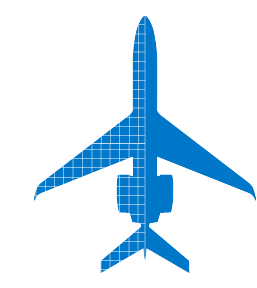Back to Special Missions
Top 7 factors affecting the value of a pre-owned aircraft

What affects a used aircraft’s resale value?
Several factors determine the selling price of a pre-owned airplane
 Airframe hours and age
Airframe hours and age
An aircraft loses a certain amount from its value for every hour it flies over the fleet’s average. That per-hour reduction changes depending on the model and grows smaller as the aircraft ages. Though flying under the fleet average is good for other reasons, the market does not offer a similar advantage to aircraft values when the total number of hours flown is below the fleet’s average. Consequently, early in an aircraft’s lifecycle, total airframe hours have greater impact on an aircraft’s value. Years later, the age of the aircraft affects resale value more. Engine hours
Engine hours
The closer an engine is to its recommended time between overhaul, the less its value. Equally important is a record of consistent use coupled with a good maintenance program. Installed equipment
Installed equipment
The technology inside the aircraft can have a noticeable impact on values, good and bad. Some owners double the value of their older models by installing new avionics. Conversely, dated technology, including old air conditioning and aging deicing gear can bring down resale value because those systems are generally more expensive to maintain.
 Records and Airworthiness Directives
Records and Airworthiness Directives
Complete records that show prompt responses to Airworthiness Directives and other maintenance needs increase an aircraft’s value. Buyers should review the aircraft’s airworthiness certificate, engine and airframe logbooks, aircraft equipment list, weight and balance data, placards and FAA-approved aircraft flight manual or owner's handbook. Missing documents, pages or entries from aircraft logbooks may cause significant problems for the buyer and reduce the value of the aircraft.  Damage history
Damage history
A damage history will decrease the value of an aircraft. Buyers should consider the type of accident, nature of the damage, who repaired the damage and the degree to which the issue affected major components. Pre-purchase inspectors should closely scrutinize damage history to make sure it is properly repaired in accordance with applicable FAA regulations and recommended practices. Paint
Paint
New paint jobs can increase the value of an aircraft, but buyers should be careful. The work could hide corrosion under the surface, which can negatively affect value.  Interior
Interior
Interiors that are in good condition and properly fit also enhance the value of the aircraft. Even so, some owners still choose to update their aircraft’s interiors before they sell so that colors and patterns more closely match the latest trends. Choosing to do so can lessen the time the aircraft are on the market.